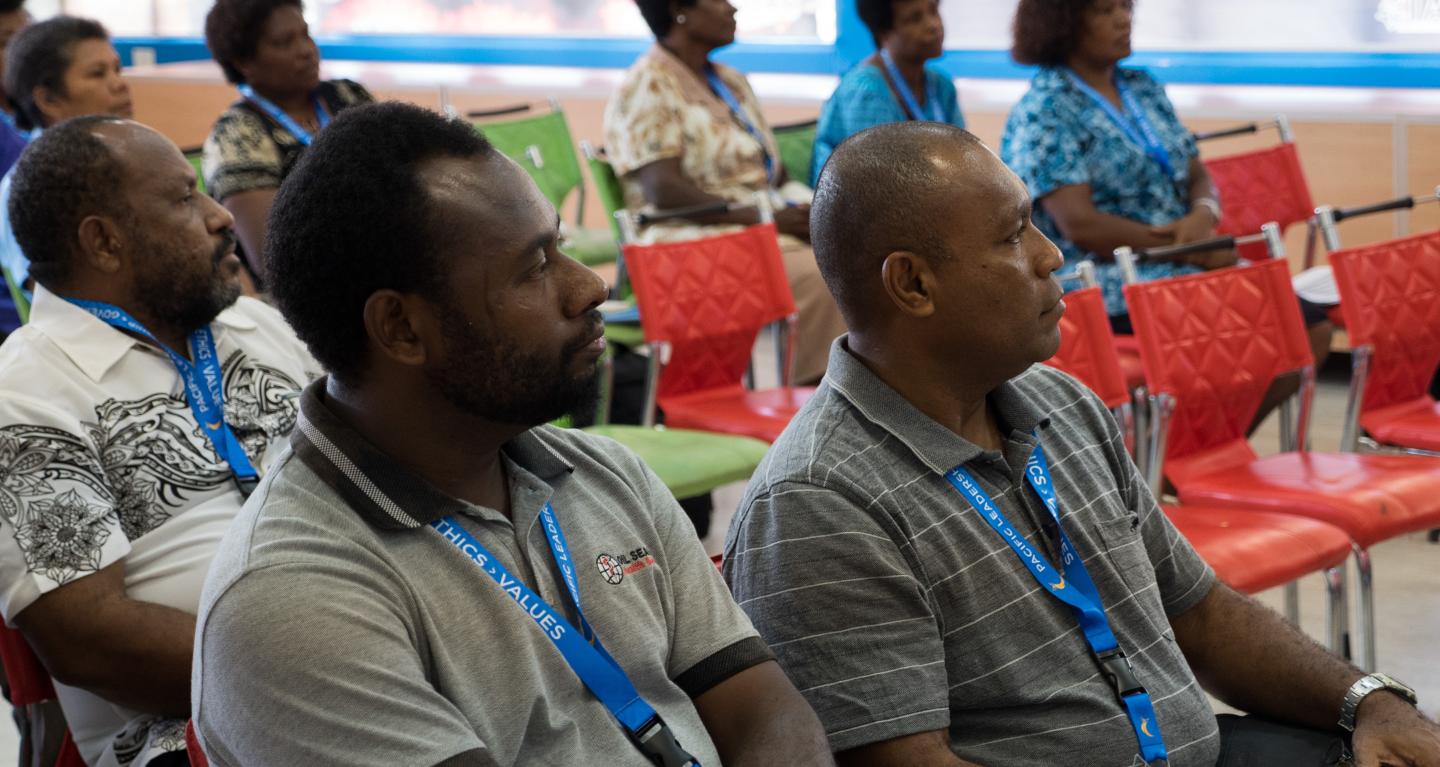
The Future Leader’s Program (FLP) is the foundational program of the Pacific Leadership and Governance Precinct (PLGP), a joint initiative of the Papua New Guinea and Australian Governments. The FLP is a key part of the Precinct’s goal to develop more ethical and capable public sector leaders to enable more effective government service delivery in PNG. The program is designed to comprehensively address the needs of future leaders in PNG, taking into consideration current capacity gaps, succession planning and future implications of an aging workforce.
In line with the priorities of the Department of Personnel Management, the Program is based on the Ethics and Values-Based Executive Leadership and Management Capability Framework (LCF) and the Gender Equity and Social Inclusion (GESI) policy of the National Public Service. The FLP is a combination of skills-based training, peer-to-peer learning, participatory exercises, class discussions, academic coursework and workplace projects. A key feature of these teaching and learning methods is to further embed gender and social inclusion for more effective and ethical leadership in PNG.
Square Circle has been involved in the design and delivery of the FLP program since its inception in 2017 and we continue to organise, facilitate, and teach into the program. Since 2017, we have worked closely with over 200 emerging leaders from across Papua New Guinea, working in various national and subnational government agencies/departments. Drawing on their training and engagement with the FLP, participants work to share knowledge, effect change and support better outcomes in their workplaces and communities.
Through the program, participants develop and implement ‘Workplace Application Projects’ in areas of significant relevance for their communities. These projects often target improvements in areas such as transparency, local level democracy, better government outreach and inclusive service delivery, typically in key priority sectors such as health, education, agriculture, fisheries and extractives. Workplace projects often also support income generating activities for local communities, developed through improved community engagement and connectivity.
No related testimonials content found at the moment for this project work.